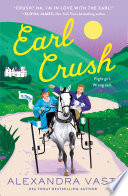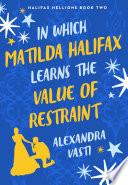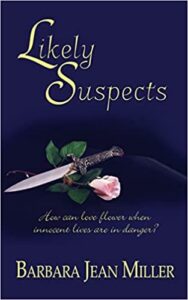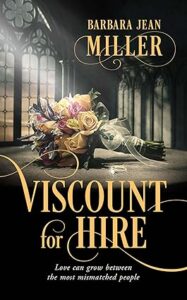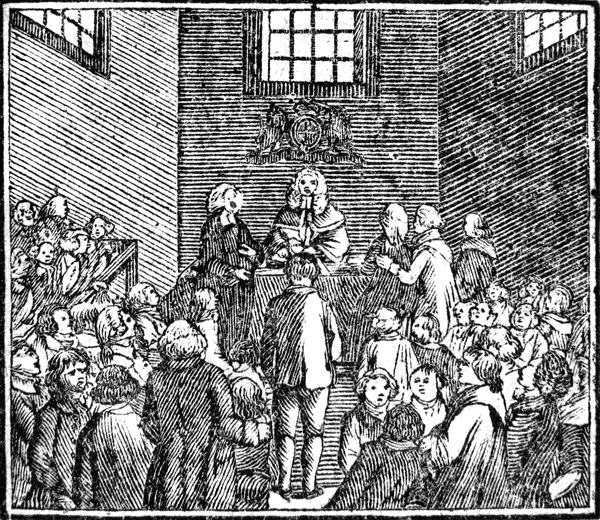
For serious criminal and civil matters, the courts of assize or assizes as they were known were held in country towns. Visiting judges from higher London courts often presided over the assizes, a system that was created sometime in the 12th Century and largely abandoned by reform in 1971 (http://www.parliament.uk/about/living-heritage/transformingsociety/laworder/court/overview/assizes/). Judges, normally in pairs, moved around circuits on royal commission (http://www1.somerset.gov.uk/archives/Leaflets/Assizes.pdf).
Cases were assigned to assizes by the Quarter Sessions, or periodic courts held in local jurisdictions by justices of the peace. These courts were traditionally held four set times a year, the days for hosting later called Epiphany, Easter, Midsummer, and Michaelmas. The assizes typically were held two or three times a year, commencing with great ceremony (http://charlesdickenspage.com/glossary.html).
Counties in England in Wales were grouped in to circuits to hear assize cases; the circuits includes: Home, Norfolk and South-Eastern; Midland; Northern and North-Eastern; Oxford; Welsh including Chester; and Western (http://www.nationalarchives.gov.uk/help-with-your-research/research-guides/criminal-trials-assize-courts-1559-1971/#8-assize-circuits).
Court of assize had two types of juries, the grand and petit (or petty) jury. The grand jury, similarly to its contemporary use, was used to evaluate whether a case demonstrate sufficient evidence or merit to stand trial. Defendants were held silent during this process (http://vcp.e2bn.org/justice/page11440-juries.html). Petit juries were then made up of 12 jurors who evaluated evidence in the trial and decided on the innocence or guilt of a defendant.
Attorneys enrolled at Westminster were permitted to make arguments and advise clients in much the same manner as contemporary court proceedings (A Practical Guide to the Quarter Sessions, and Other Sessions of the Peace, 1829).
Based on the reports from the era, guilty parties from the assizes were either transported or hanged.
More:
http://www.nationalarchives.gov.uk/help-with-your-research/research-guides/criminal-trials-assize-courts-1559-1971/


